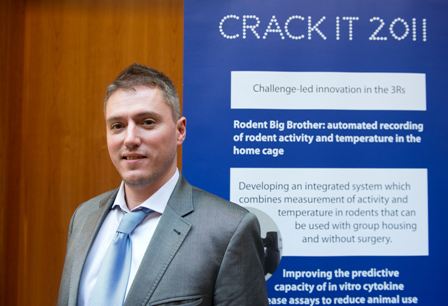The University has won a £1 million grant to develop tools to assess the safety of chemicals, without using animals.
Approximately 16,000 animals are used throughout Great Britain each year for toxicity testing in chemical, agrochemical, pharmaceutical and consumer product sectors.
In response, the Department for the Environment, Food and Rural Affairs (Defra) and the National Centre for the Replacement, Refinement and Reduction of Animals in Research (NC3Rs) set researchers a challenge to develop a safe system that lowered animal exposure, at the same time as providing a safe basis for the interpretation of results when applied to humans.
Funding of £1million was allocated by both NC3Rs and Defra, with AstraZeneca, Syngenta and Unilever providing an equivalent level of in-kind contribution including human, animal and in vitro (test tube) data, as well as sharing expertise.
NC3Rs want novel in vitro and mathematical modelling computational tools to be developed to evaluate cellular responses in a suite of ‘toxicity pathway’ assays using human cells and tissues.
Dr Dominic Williams, from the University’s Department of Molecular and Clinical Pharmacology, will collaborate with partners at the Universities of Bath, Loughborough, Oxford and Strathclyde to investigate how this pathways approach to safety assessment can be put into practice.
Dr Williams, who won the British Toxicology Society’s Young Investigator Award in 2006, said: “This is a new partnership formed as a result of the NC3Rs workshop on mathematical modelling. Using tissue engineered liver models, employing hollow fibre bioreactors containing human liver cells, we will examine effects of drugs and chemicals upon biological pathways associated with liver toxicity. The data on these effects will then be used in mathematical models to extrapolate to what would be a safe chemical dose for humans, without the use of animals.”
Dr Williams grant was the joint largest of five awards sanctioned by NC3Rs, in a programme welcomed by Universities and Science Minister, David Willetts MP.
David Willetts said: “The Government is committed to using scientific advances to replace, reduce and refine animal use wherever possible. The NC3Rs is playing a vital role in this by building links between the life sciences industry and the research base to help identify challenges and develop innovative alternatives to animal testing. It’s very encouraging to see that this is making an impact across the sector.”

It is a great news we can save animals